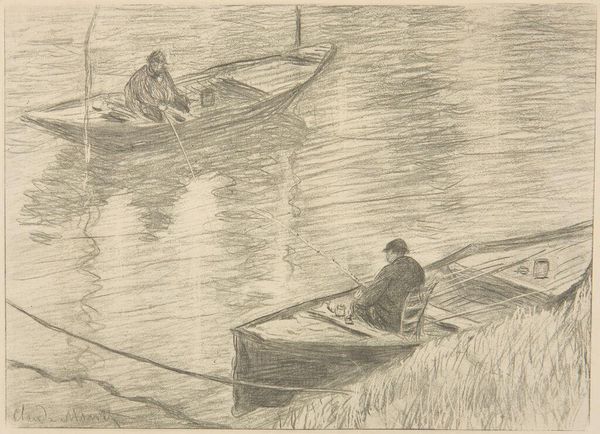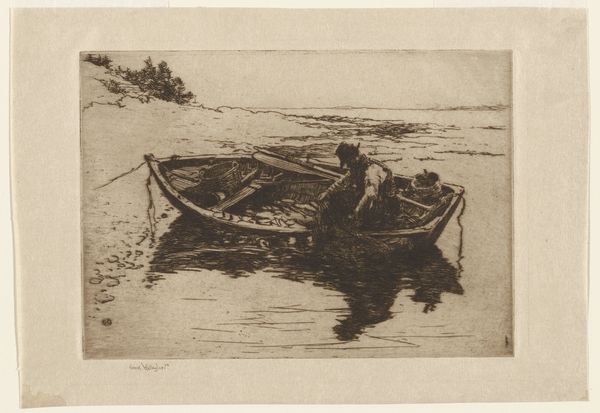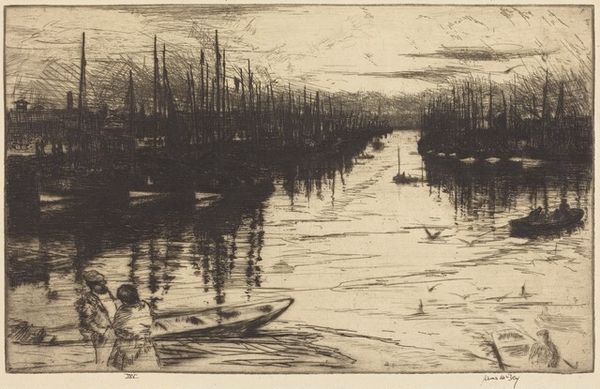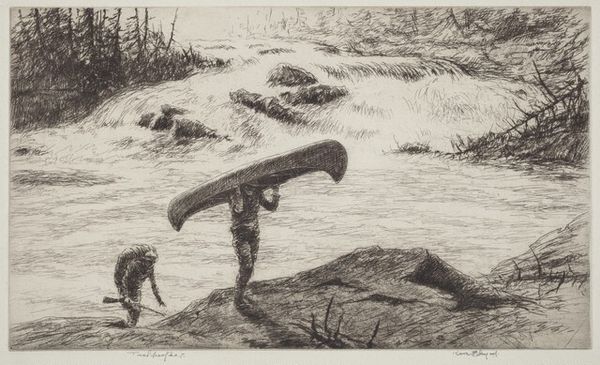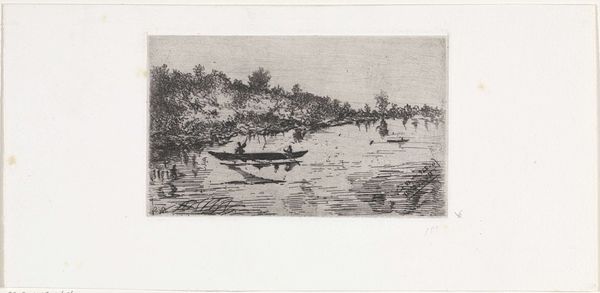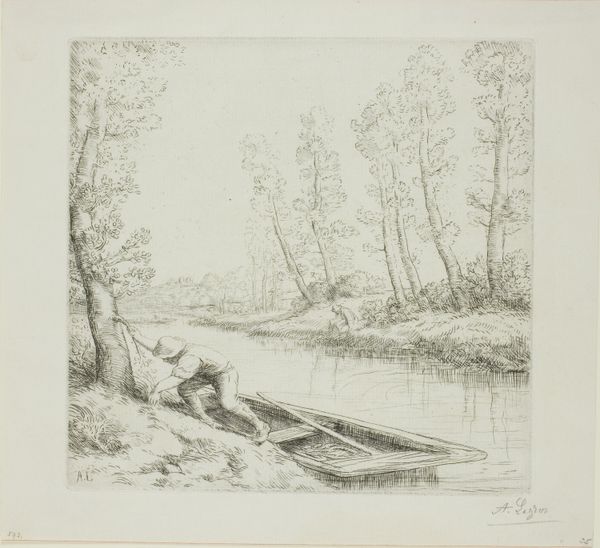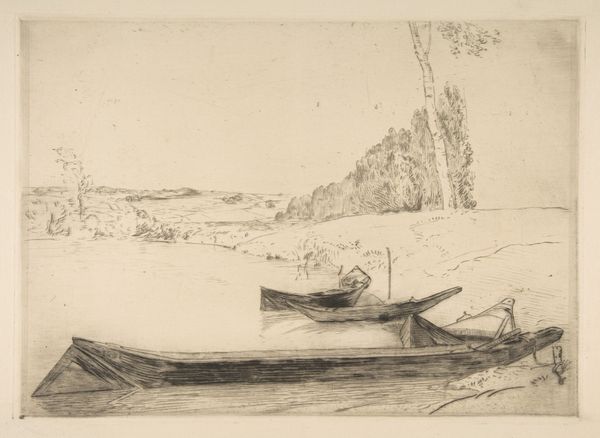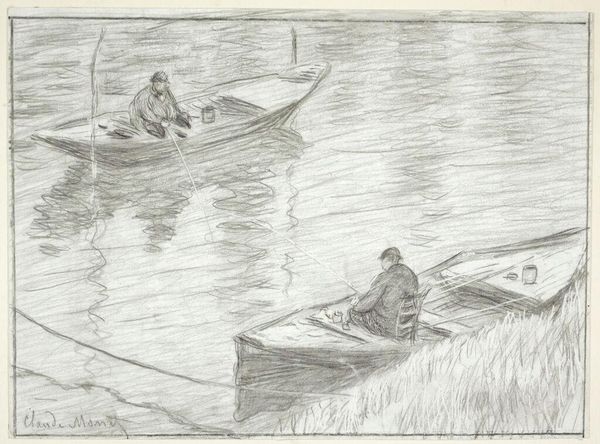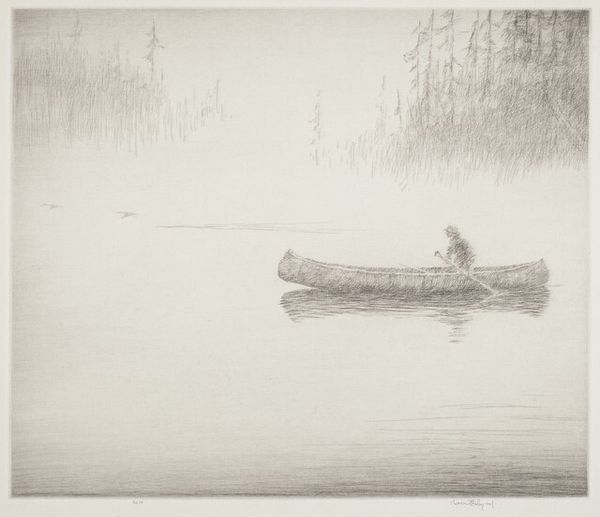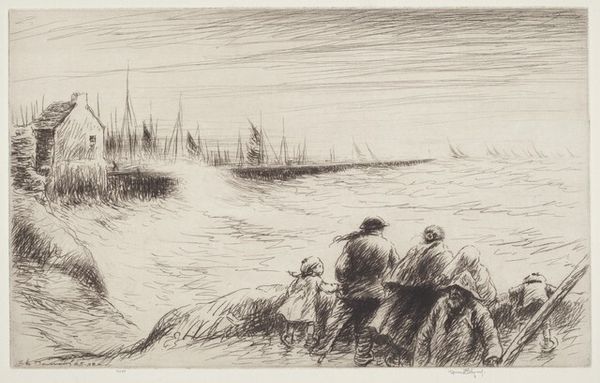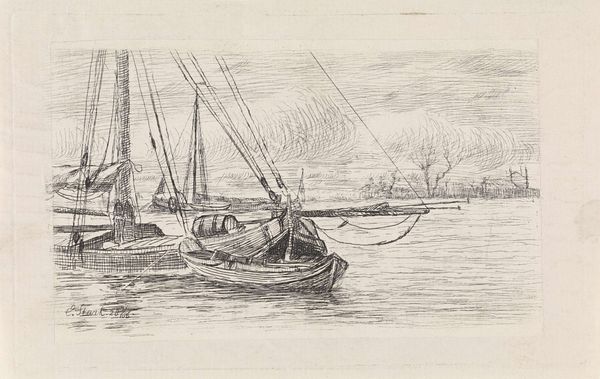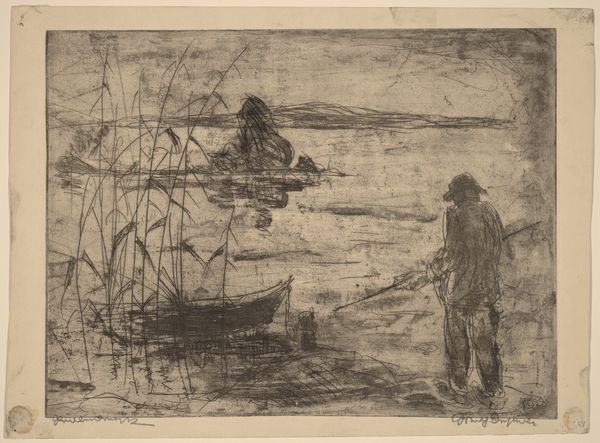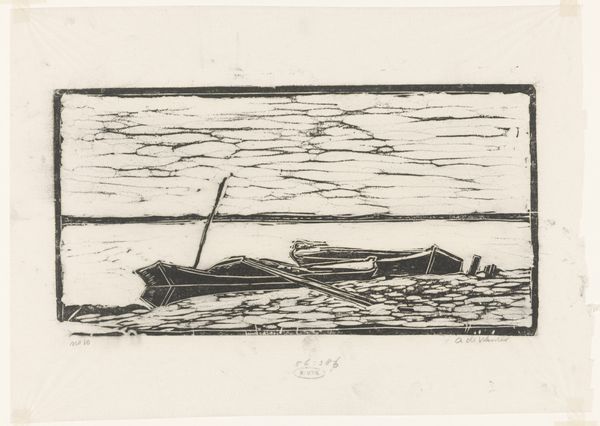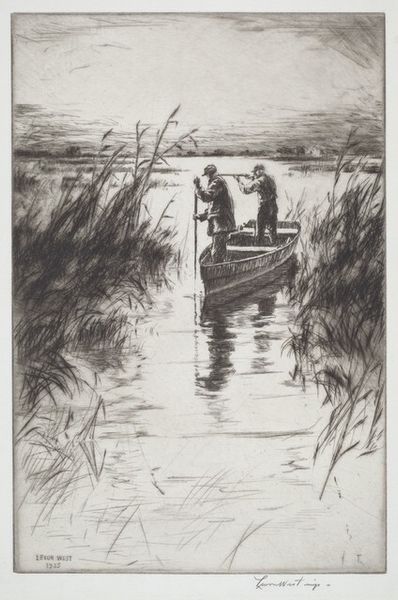
drawing, print, pencil
#
pencil drawn
#
drawing
# print
#
pencil sketch
#
landscape
#
charcoal drawing
#
pencil drawing
#
pencil
#
line
#
realism
Copyright: National Gallery of Art: CC0 1.0
Curator: Today, we're observing Kerr Eby's 1929 print, "White Water." Eby was known for his wartime scenes, but here we see something quieter. Editor: Yes, quieter certainly sums up my initial impression. The stark blacks and whites, the quick, almost frantic strokes suggesting movement… it’s a scene of tension. Even if isolated, the canoeist appears to navigate something treacherous. Curator: Eby created many images representing masculinity and power dynamics within contexts of both labor and leisure. I find myself pondering how ideas of rugged individualism are reflected within representations of wilderness here. A lone figure literally navigating the currents of life, perhaps? What is supported, or thwarted? Editor: An interesting interpretation. For me, the beauty of this piece lies in how effectively the artist conveys texture and movement with such simple means. Look at how the varying pressure on the pencil creates a sense of depth. Observe the dynamic, repetitive use of short curved lines building the appearance of both turbulent water and lush shrubbery. It’s a masterclass in economy of form. Curator: It’s important to consider the historical moment. Eby created this image at a time of shifting social and environmental attitudes in North America. The myth of the frontier was evolving; urbanization increased and nature, wilderness became an exploited "resource," its image manipulated in American advertising and art. Images of pristine waterways promoted this resource’s ongoing exploitability and obscured Indigenous land rights and the cost of "progress." Editor: True, but the raw visual impact is undeniable. We could say, from a purely formalist perspective, that this is line work achieving peak expressiveness; its stark contrast of tones giving rhythm and a sense of spatial arrangement…it’s just exquisite. Curator: Perhaps it’s both: masterful composition that simultaneously echoes and reinforces established social narratives surrounding land use, exploitation, and identity. Eby delivers beauty, yet asks us to acknowledge some ugly realities if we wish to engage deeply. Editor: Indeed. I've certainly found a newfound appreciation for the artist's choices and their broader implications. Thank you.
Comments
No comments
Be the first to comment and join the conversation on the ultimate creative platform.
